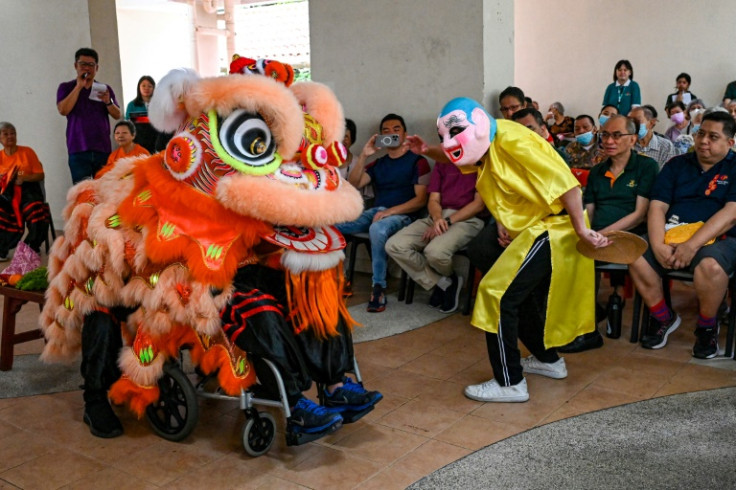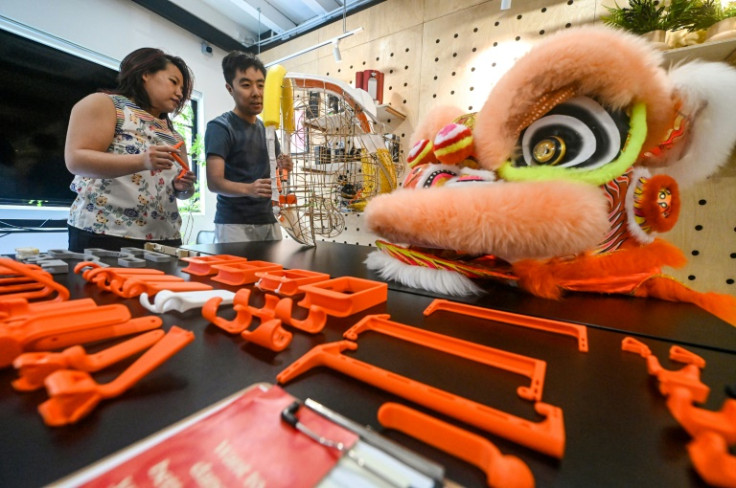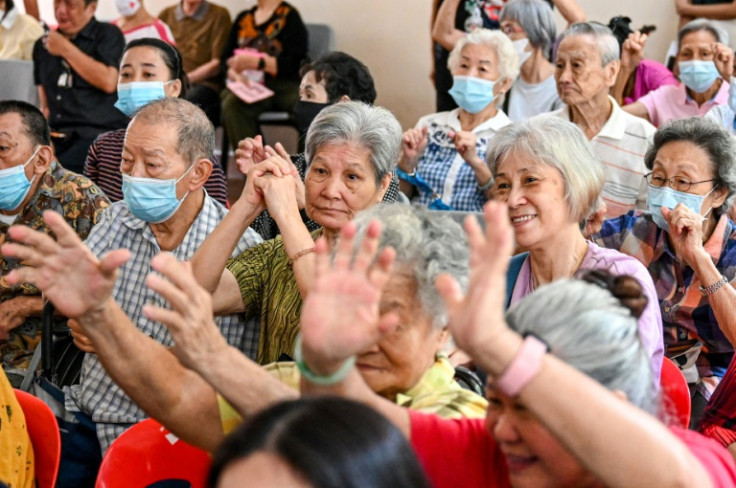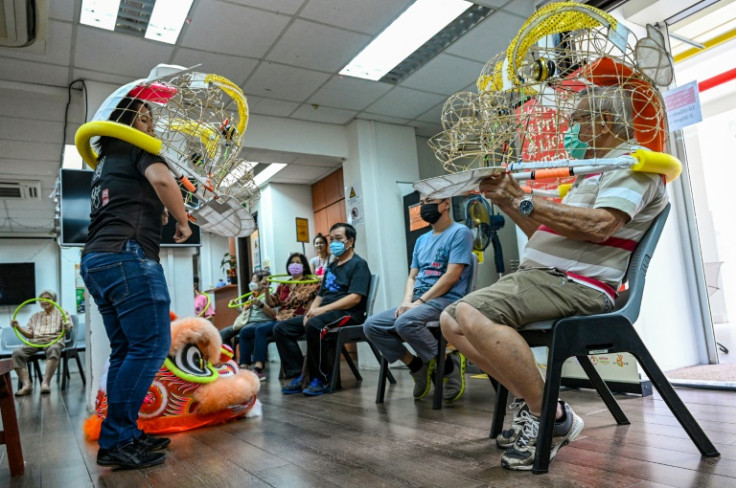
The colourful lion blinks and bobs up and down to the beat of a drum, appearing like any other traditional Lunar New Year performance with one difference -- it is operated by an 80-year-old man sitting in a wheelchair.
Normally performed by martial artists who train for years, lion dancing requires physical strength and agility to bring the creatures to life.
But a new initiative in Singapore to tackle loneliness among seniors and help them stay active has modified the choreography to allow participants to perform from a wheelchair.
The Silver Pride Lion Troupe -- a partnership between philanthropists, designers and heritage consultants -- has coaxed more than a dozen elderly people out of retirement to perform a revered Lunar New Year tradition.
At a recent celebration, 80-year-old Chia Chiang Teck shook the lion's head from side to side, opening and closing its mouth while a martial arts trainer under a furry sequined cloak acted as the tail and pushed the wheelchair around.
"I haven't done this for almost 34 years so I'm very happy that I can still do it," he said.
Formerly a martial artist able to execute backflips, Chia fondly remembers winning a local competition in the 1970s while performing as the tail of the lion but now has difficulty walking due to an old work injury.
In traditional lion heads, the blinking of the eyes and twitching of the ears are controlled by pulling strings inside.
To make this easier for seniors, a team of industrial designers has devised a 3D-printed lever and pulley system for the eyes and ears, and more supportive grips for the mouth.
"I never thought that... you can lion dance while sitting," Chia told AFP.
Singapore, like many Asian countries, has been grappling with an ageing population.
The health ministry estimates that one in four Singaporeans will be 65 or older by 2030, while an estimated 83,000 seniors will live alone.
A 2021 study led by researchers from the National University of Singapore found that older men living alone were twice as likely to be socially disconnected as older women living alone.
Lynn Wong, a martial artist who redesigned the lion choreography for the seniors, said the programme aims to address this problem.
"The hypothesis was that something that has more masculine traits like lion dance, martial arts will garner the interest of the males," said Wong, a heritage consultant who launched the programme with a local charity and a design studio.
During the six-week programme at the Fei Yue Active Ageing Centre, about 20 seniors participated in strengthening exercises led by Wong and played cymbals to accompany the lion dancers.
The agency said a quarter of the participants were men, almost double the average share in its other programmes.
For Chia, the initiative has provided a rare opportunity to relive his youth and remember his troupe mates.
"It made me think of the past, when we were training we were all really close," he said, becoming emotional as he remembered his lion-dancing partner, who has since passed away.
"He was really good at lion dancing."










